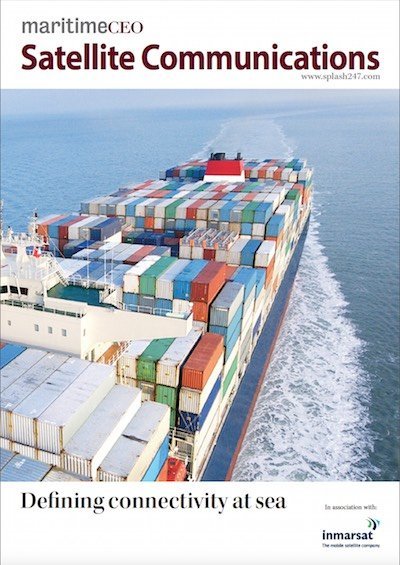Inmarsat: ‘Apps will change the landscape of shipping dramatically’

Ronald Spithout, as his name might suggest, is a plain speaker – someone who does not mince words, with a clear vision of where he sees maritime communications heading. The president of Inmarsat Maritime reckons a giant shift in the landscape of shipping is on the horizon thanks to the development of new communications and applications. His interview with Maritime CEO forms part of a special 16-page magazine launching today on the future of satellite communications.
Spithout has short-, medium- and long-term goals mapped out for Inmarsat Maritime and by extension the shipping community. First immediate priority is the roll out of Fleet Xpress, Inmarsat’s maritime Global Xpress solution. A hybrid Ka-band/L-band service offering seamless connectivity, that delivers the world’s first globally available, high-speed broadband service from a single network operator.
“All owners are talking about big data, apps, connectivity and so on,” he relays, “but no one has cracked a global satellite solution.”
A Maritime CEO survey of 150 owners and managers carried out for the magazine we are launching today put global coverage above even pricing in terms of maritime communications priorities, something Inmarsat and Spithout have clearly heeded.
The Inmarsat boss’s medium-term goals are far more overwhelming. “We want to change the landscape and role of the distribution of satellite communications,” Spithout says. The way this former electrical engineer sees it is that everything onboard will get apps and the data derived will then be sent to shore. Inmarsat is working with software giant Cisco on this project.
Apps are yet to truly get a foothold in shipping. This will change however, says Spithout. “The reason apps have not worked so far in maritime is because owners did not know the cost of having them, bandwidth-wise,” he says.
Spithout is convinced there will be a big market onshore keen to develop maritime apps. As an example, he cites engine manufacturers, who could sell a service app for a flat fee.
“This move for apps might take a couple of years,” he concedes, “but once done it will change the landscape of shipping dramatically.”
To harness this change, looking long-term Inmarsat will head out to maritime universities, seed small companies, and build test labs to get start-ups to innovate their applications.
“We will move to where innovation is,” Spithout concludes.
To access the full 16-page magazine on the future of satellite communications for free online, click here. The magazine will also be distributed at next week’s London International Shipping Week.

